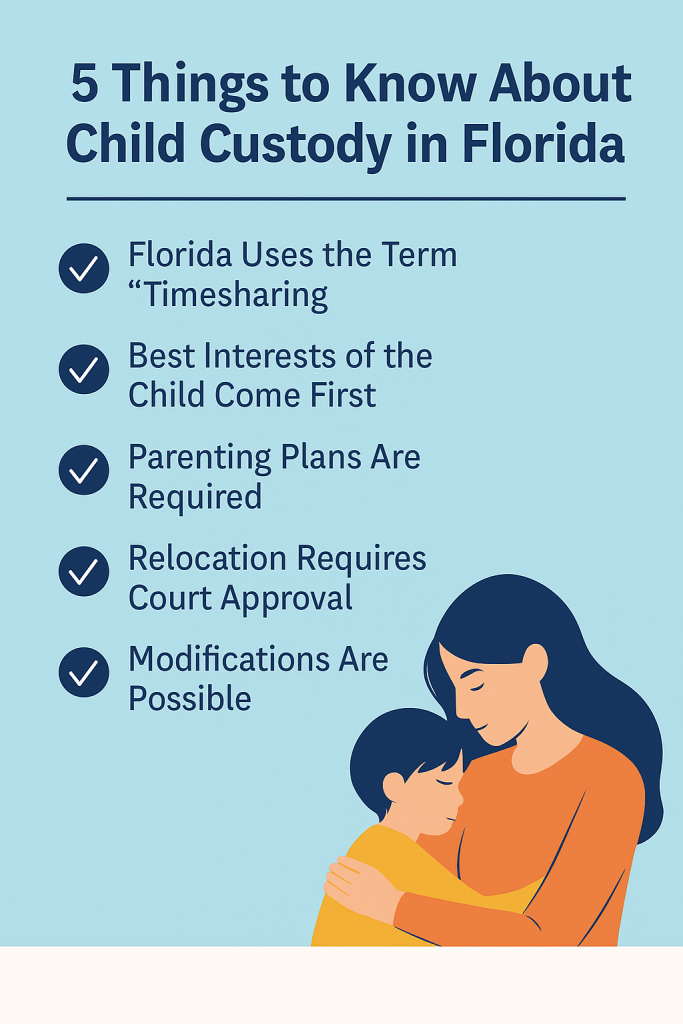
Navigating child custody matters can feel overwhelming, especially during an emotional divorce or separation. Florida’s custody laws aim to put the best interests of the child first — but understanding your rights and responsibilities is crucial. Here are five important things every parent should know about child custody in Florida.
1. Florida Uses the Term “Timesharing”
In Florida, the legal term for custody is “timesharing.”
Parents are encouraged to share the rights and responsibilities of raising their children. Instead of “custody” and “visitation,” Florida courts now focus on developing a Parenting Plan that outlines when each parent will have time with the child.
✅ Tip: The court prefers arrangements that allow for frequent and continuing contact with both parents.
2. Best Interests of the Child Come First
The court’s primary focus is always the best interests of the child.
Factors include:
- The child’s relationship with each parent
- Each parent’s ability to meet the child’s needs
- The stability of each parent’s home
- The moral fitness and mental health of each parent
- The child’s school, community, and home environment
✅ Tip: Demonstrating cooperation and stability can heavily influence custody decisions.
3. Parenting Plans Are Required
In all Florida custody cases, a Parenting Plan must be created — either agreed upon by the parents or ordered by the court.
The Parenting Plan addresses:
- Timesharing schedule (where the child will live)
- Decision-making authority (schooling, healthcare, activities)
- Methods of communication between parents and child
✅ Tip: A detailed Parenting Plan reduces conflicts later and protects both parents’ rights.
Download the official Florida Parenting Plan form from the Florida Courts website
4. Relocation Requires Court Approval
If a parent wishes to move more than 50 miles away for more than 60 days, court approval or the other parent’s written consent is required.
Relocation can impact timesharing, school choices, and a child’s stability — and courts do not allow it lightly.
✅ Tip: Plan ahead and consult an attorney before making any major moves if you share custody.
5. Modifications Are Possible
Custody (timesharing) and Parenting Plans are not set in stone.
If a substantial, material, and unanticipated change occurs (such as a parent’s relocation, job change, or safety issues), you can request a modification.
✅ Tip: Courts require clear evidence that the change benefits the child — not just the parent.
✏️ Final Thoughts
Child custody issues can be complex, but knowing the basics of Florida’s laws can make a big difference in protecting your child’s best interests — and your own rights as a parent.
If you are facing custody decisions, relocation challenges, or need to modify an existing Parenting Plan, consulting an experienced family law attorney can help guide you through the process with clarity and compassion.
📞 Need help with a custody case in Florida?
Visit joeltheattorneysblog.com to learn more or schedule a consultation today.

